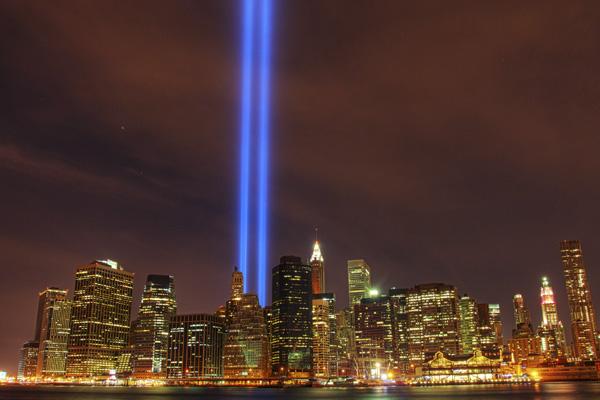
“Those who would give up essential Liberty, to purchase a little temporary Safety, deserve neither Liberty nor Safety”
-Benjamin Franklin
In the wake of the tragedy that occurred on September 11, 2001, millions of Americans across the country feared for their safety. The government acted resolutely to pass sweeping legislation to make sure nothing could ever happen like this again. One such legislation was the Patriot Act, an extensive anti-terrorism bill that would make finding, tracking, and preventing terrorist attacks much easier. This bill, and the scope of it, while seemingly necessary at the time, would have profound impacts on the privacy of every American for years to come.
Section 215 of the Patriot Act allowed nearly all communications, from texts to emails to web history, to be collected and stored by the NSA without warrant or probable cause. They had nobody to be accountable to, even though what they did at the time was illegal and possibly unconstitutional. Even the people supposed to be watching over their actions did not know the scope that the NSA had been spying on the American people, till Edward Snowden leaked documents in 2013 to the public. The NSA had two programs that collected data on every American, PRISM and XKeyscore. These two programs allowed the NSA to store and retroactively search phone, internet, and email data for all Americans they had collected.
Since then the public has almost become desensitized to the issue of privacy. And this past June, the Patriot Act expired, but was quickly replaced. The new law is called the USA Freedom Act, and was hailed as the fix to the mass surveillance to all US citizens. Privacy advocates everywhere saw it as a big step, that the country was finally free of mass government surveillance, but in reality, little changed. Many of the concerns raised over the original law were not addressed, such as the collection of foreign Internet data which includes American communications, foreign entities simply spying on Americans for the NSA, and the NSA’s role in exploiting new technology. Even more concerning is the fact that the only data collection the NSA is required to stop is phone calls, and that the Obama administration released no plan to remove the data already collected.. For the most part the bill simply puts the spying in the hand of private third parties, and the NSA is required to get a court order from the secret FISA court to collect that data.
So among of all of this info, I find a lot people ask the question, “Why should I care?” Things like these are rarely relevant to any high school student. On top of that privacy is hardly a tangible concept, and it’s one that most students never have to deal with. So the question is understandable. My generation is the most online generation so far, and the scope of information that is put out there by ourselves is staggering. It’s not scary to post online, because we have an expectation of who will see it, our friends, maybe theirs, but we are okay with that because we usually think about that before we post something online. But when the government is possibly collecting that data, regardless of who you are or what you’ve done, the line between privacy and security is blurred.
Our generation is one of activists, of thinkers, of non-conformists and revolutionaries. We have more knowledge at our fingertips than mankind has ever had, and we use it. We demand that we have a right to know things, we demand that some things change because we see differently than other generations, we demand that our ideas are represented. So when these ideas, the things that we wish to see happen for the better, are against those in power, a lack of privacy becomes tangible. When a government can search your name and info and single you out, your freedom is in danger. Most students in high school don’t go to protests or rallies, but one thing almost all can agree on is that people deserve the right to. Even if we, ourselves, are not at the wrong end of the stick, we must be able to fight for those that are. Because when we come complacent with one person being stripped of their freedom, and do nothing, we can’t expect our freedoms to be protected. When people know that their info is being stored it creates fear, a fear that hinders our ability to come together, to protest, to make the issues that matter to us the issues that we all see. For the most part, no student ever deals with these, but they do support them. Right now, those rights are being, little by little, taken. They are not gone, but in this day and age it seems all expectations of privacy are gone, and we have become complacent with that.
Privacy is a difficult issue to talk about, but it is something that must be talked about. We may not live in a totalitarian police state, but we have the foundation for one. When we see Russia in the news for ending a protest or jailing activists, we see that as some other country and not us. But for some that is real here. Some people don’t like the Obama administration due to various reasons, they may speak out against him, and we can do that, because this is America, we have the right to say what we think. But if we are okay of our freedoms being stripped now, when a time comes where privacy is nonexistent, possibly beyond our lives, maybe so far into the future we are just pages in a text book, and people want to speak out and they can’t because the government knows them and can access their data, it is already too late. It may never happen, but why should we ever let it happen it all, if we can stop it now. Now the government can collect data from your emails, twitter, facebook, instagram, snapchat, web history, phone calls, text messages, and maybe they don’t use it, but if they don’t use it, why let them have it? Why let them chip at our rights now, why let them collect any of your data when you have done nothing wrong, and why let them do this in the name of security? When NSA spying is ineffective, and yet millions of Americans continued to be spied upon, for no purpose, why let them continue? Privacy may mean nothing to you, or everything to you, but we all know that we have a right to think and say what we want to think and say whether it be against racism, as Martin Luther King did while spied upon in the 1960’s, the environment, as the FBI spied upon Keystone XL protesters just this year, or any other subject, we know that we can speak our mind. And when in any situation that that right is taken away, whether by fear, intimidation, or other means, America becomes a little less American.
Most high schoolers won’t care, and I don’t blame them because privacy is something few people ever talk about. Maybe what I said earlier made sense to some, none to others, maybe it’s just entirely irrelevant to you and your life, but the only important thing is that we talk about it. This generation has the best chance to have an open dialogue about privacy, and we can decide whether or not we value it, or security, whether it means anything to us now in this age of connectedness, and whether it’s something worth fighting for. This article was not written for answers, I don’t have them, but only if we actually discuss privacy can we ever know what it means to us. So on this fourteenth anniversary of 9/11, not only should we remember those lost, but what we as a generation think should be done about it.



